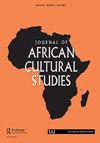曾经有一个校园怀旧、记忆与尼日利亚大学 "校园儿童 "网络社区的形成
IF 0.7
2区 社会学
Q2 CULTURAL STUDIES
引用次数: 0
摘要
ABSTRACT: 1960 年 10 月 7 日,尼日利亚大学隆重开幕,成为尼日利亚独立庆典的一部分,将该校的命运与国家联系在一起。七年后,尼日利亚--比亚夫拉战争(1967--1970 年)爆发,促使双方脱钩。本文将这场战争视为该校历史上的一个转折点,并对战后的校园动态进行了研究,认为许多大学学者投入建设比夫拉的动力被转移到了尼日利亚大学的重建中。在战后背景下,社区建设是大学恢复性项目的核心内容,而 "校园儿童"(大学教职工在校园中成长的子女)的经历则是由家庭之间培养起来的亲情感决定的。本文以 20 世纪 80 年代和 90 年代的校园儿童为重点,探讨了社交媒体在促进校园儿童在线重新联系方面的应用。文章讨论了网络空间在重塑过去、社区建设和社会经济支持方面的应用,并认为这些数字社区是家乡协会的当代网络迭代。本文章由计算机程序翻译,如有差异,请以英文原文为准。
There Was a Campus: Nostalgia, Memory and the Formation of University of Nigeria “Campus Kids” Online Communities
ABSTRACT The ceremonial opening of the University of Nigeria on 7 October 1960 formed part of Nigeria’s independence celebrations, linking the destiny of the institution to the nation. Seven years later, the outbreak of the Nigeria–Biafra war (1967–70) instigated a decoupling. This article reads the war as a turning point in the history of the institution, and examines the post-war dynamics on campus, arguing that the momentum many university academics invested in building Biafra was transferred into the rebuilding of the University of Nigeria. In the post-war context, community building was a central aspect of the university’s restorative project, and the experience of “campus kids”, the children of university staff growing up on campus, was shaped by the sense of kinship that was fostered between families. With a focus on campus kids from the 1980s and 1990s, this article explores the use of social media in facilitating the reconnection of campus kids online. It discusses the use of online spaces in the remapping of the past, community building and socio-economic support, and suggests that these digital communities present a contemporary online iteration of the home-town association.
求助全文
通过发布文献求助,成功后即可免费获取论文全文。
去求助
来源期刊

Journal of African Cultural Studies
Multiple-
CiteScore
1.70
自引率
10.00%
发文量
13
期刊介绍:
The Journal of African Cultural Studies publishes leading scholarship on African culture from inside and outside Africa, with a special commitment to Africa-based authors and to African languages. Our editorial policy encourages an interdisciplinary approach, involving humanities, including environmental humanities. The journal focuses on dimensions of African culture, performance arts, visual arts, music, cinema, the role of the media, the relationship between culture and power, as well as issues within such fields as popular culture in Africa, sociolinguistic topics of cultural interest, and culture and gender. We welcome in particular articles that show evidence of understanding life on the ground, and that demonstrate local knowledge and linguistic competence. We do not publish articles that offer mostly textual analyses of cultural products like novels and films, nor articles that are mostly historical or those based primarily on secondary (such as digital and library) sources. The journal has evolved from the journal African Languages and Cultures, founded in 1988 in the Department of the Languages and Cultures of Africa at the School of Oriental and African Studies, London. From 2019, it is published in association with the International African Institute, London. Journal of African Cultural Studies publishes original research articles. The journal also publishes an occasional Contemporary Conversations section, in which authors respond to current issues. The section has included reviews, interviews and invited response or position papers. We welcome proposals for future Contemporary Conversations themes.
 求助内容:
求助内容: 应助结果提醒方式:
应助结果提醒方式:


